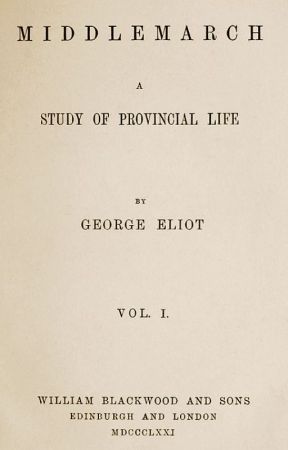"Then went the jury out whose names were Mr. Blindman, Mr.
No-good, Mr. Malice, Mr. Love-lust, Mr. Live-loose, Mr.
Heady, Mr. High-mind, Mr. Enmity, Mr. Liar, Mr. Cruelty, Mr.
Hate-light, Mr. Implacable, who every one gave in his
private verdict against him among themselves, and afterwards
unanimously concluded to bring him in guilty before the
judge. And first among themselves, Mr. Blindman, the
foreman, said, I see clearly that this man is a heretic.
Then said Mr. No-good, Away with such a fellow from the
earth! Ay, said Mr. Malice, for I hate the very look of him.
Then said Mr. Love-lust, I could never endure him. Nor I,
said Mr. Live-loose; for he would be always condemning my
way. Hang him, hang him, said Mr. Heady. A sorry scrub, said
Mr. High-mind. My heart riseth against him, said Mr. Enmity.
He is a rogue, said Mr. Liar. Hanging is too good for him,
said Mr. Cruelty. Let us despatch him out of the way said
Mr. Hate-light. Then said Mr. Implacable, Might I have all
the world given me, I could not be reconciled to him;
therefore let us forthwith bring him in guilty of death."
--Pilgrim's Progress.
When immortal Bunyan makes his picture of the persecuting passions
bringing in their verdict of guilty, who pities Faithful?
That is a rare and blessed lot which some greatest men have
not attained, to know ourselves guiltless before a condemning crowd--
to be sure that what we are denounced for is solely the good in us.
The pitiable lot is that of the man who could not call himself a martyr
even though he were to persuade himself that the men who stoned
him were but ugly passions incarnate--who knows that he is stoned,
not for professing the Right, but for not being the man he professed
to be.
This was the consciousness that Bulstrode was withering under while he
made his preparations for departing from Middlemarch, and going to end
his stricken life in that sad refuge, the indifference of new faces.
The duteous merciful constancy of his wife had delivered him from
one dread, but it could not hinder her presence from being still a
tribunal before which he shrank from confession and desired advocacy.
His equivocations with himself about the death of Raffles had
sustained the conception of an Omniscience whom he prayed to,
yet he had a terror upon him which would not let him expose them
to judgment by a full confession to his wife: the acts which he had
washed and diluted with inward argument and motive, and for which it

YOU ARE READING
MIDDLEMARCH (Completed)
ClássicosMiddlemarch, A Study of Provincial Life is a novel by the English author George Eliot, first published in eight installments (volumes) during 1871-72. The novel is set in the fictitious Midlands town of Middlemarch during 1829-32, and it comprises...
